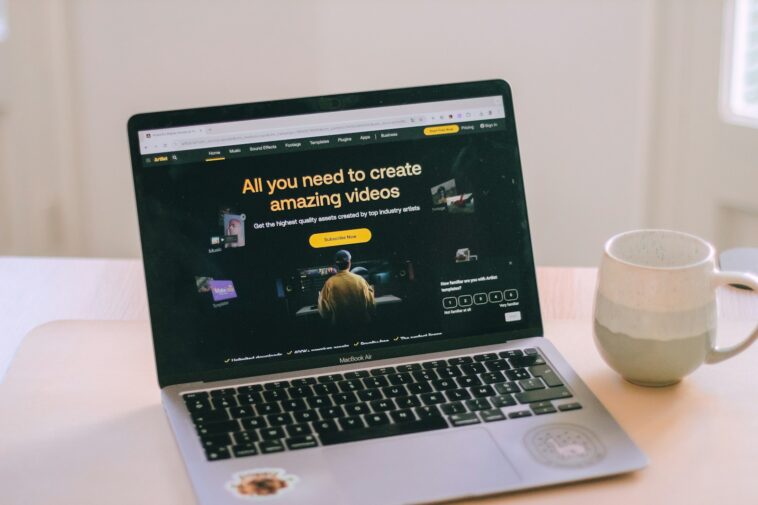Affiliate marketing is one of those business models that looks simple on the surface but quickly gets overwhelming once you start juggling multiple platforms, content strategies, and audience behaviors.
I’ve been there—pouring hours into creating content, experimenting with campaigns, and hoping for consistent results.
That’s exactly where AI has become a real game-changer for me, and it might be the missing piece in your strategy too.
AI isn’t just about robots and futuristic tech—it’s a set of practical tools that can help you save time, make smarter decisions, and grow your affiliate income faster.
Let me walk you through how I use AI to enhance my affiliate marketing strategy and how you can do the same.
1. Smarter Keyword Research and SEO
Ranking on Google is still one of the best ways to drive traffic, but traditional keyword research can take forever.
I use AI-powered tools to uncover hidden keyword opportunities in minutes. Instead of manually combing through spreadsheets, I can get clusters of related keywords, search intent insights, and even content gap analysis automatically.
For example, AI can highlight phrases people are searching for but competitors haven’t fully covered.
This gives me a better chance of ranking and driving targeted traffic. Plus, AI tools now help generate SEO-friendly headlines, meta descriptions, and outlines, which saves a ton of time.
2. Personalized Content Creation
One of the hardest parts of affiliate marketing is standing out. Readers don’t want generic product reviews—they want something that feels helpful and personal.
AI helps me generate tailored content ideas and even draft first versions of blog posts, product comparisons, and buying guides.
I still edit and add my own voice (because authenticity matters), but AI gives me a strong starting point. It’s like having a research assistant who organizes the facts and trends for me so I can focus on storytelling and trust-building.
3. Better Audience Insights
Affiliate success comes down to understanding your audience—what they care about, what motivates them, and what stops them from buying. AI makes this easier by analyzing data I’d never have time to process on my own.
From social media comments to email engagement patterns, AI tools can highlight trends I might otherwise miss.
For instance, I can see which content resonates most with different audience segments and then tailor my campaigns to match. That level of personalization is what turns casual readers into buyers.
4. Optimized Email Campaigns
Email marketing is still one of the most effective ways to drive affiliate sales. The challenge? Getting people to open, read, and click.
AI helps me by suggesting subject lines, predicting send times, and even creating personalized product recommendations based on subscriber behavior.
I’ve noticed that AI-driven recommendations feel less like generic blasts and more like helpful suggestions. That shift makes a big difference in click-through rates and overall conversions.
5. Smarter Ad Targeting
If you run paid ads as part of your affiliate strategy, AI is practically essential. Instead of guessing which audiences will convert, AI platforms automatically test and optimize campaigns. They can adjust bidding, creative variations, and placements in real time.
That means less wasted money and more chances to get your affiliate offers in front of the right people. I no longer feel like I’m blindly spending ad dollars—I have data-backed decisions guiding my campaigns.
6. Predictive Analytics for Decision-Making
Affiliate marketing often feels reactive—you publish content, wait for results, and then adjust. AI flips that by helping predict future trends.
I use AI tools that analyze past performance and forecast which types of products or niches are likely to perform best.
This doesn’t just help me plan better—it reduces the guesswork. I can double down on campaigns that are likely to pay off and cut back on the ones that aren’t working.
7. Automating Repetitive Tasks
Finally, let’s be real: affiliate marketing comes with a lot of repetitive tasks. From generating UTM links to updating old content and checking for broken links, these chores eat up valuable time. AI-powered automation tools handle much of this for me.
By offloading the busywork, I get more hours back in my week to focus on strategy and creativity—the parts of affiliate marketing that actually grow revenue.
FAQs
Will AI replace human marketers?
Not at all. AI is great at handling data, patterns, and automation, but it lacks the personal touch, creativity, and authenticity that real people bring. Think of AI as a powerful assistant, not a replacement.
Do I need to know coding to use AI tools?
No. Most AI tools are user-friendly and built for marketers without technical backgrounds. If you can use standard marketing platforms, you’ll have no problem adapting to AI-powered ones.
Is AI expensive to use?
It depends. Some tools offer free plans or affordable subscriptions, while more advanced platforms can get pricey.
The key is to start small with tools that directly solve your biggest challenges, then scale as you see results.
What’s the biggest mistake people make with AI in affiliate marketing?
The biggest mistake is relying on AI without adding your own input. Readers want trust and authenticity. If you publish content exactly as AI generates it, it’ll feel robotic. Always add your unique perspective and voice.
Final Thoughts
AI isn’t a magic solution, but it’s a powerful partner that can give your affiliate marketing strategy a serious upgrade.
From smarter keyword research to predictive analytics, AI can save time, boost accuracy, and help you connect with your audience in ways that weren’t possible before.
I’ve found that the best results come from using AI as a supportive tool while keeping my own creativity and authenticity front and center. That’s what builds trust—and ultimately drives conversions.
So, here’s my question for you: how will you use AI to make your affiliate marketing smarter, not just easier?





GIPHY App Key not set. Please check settings